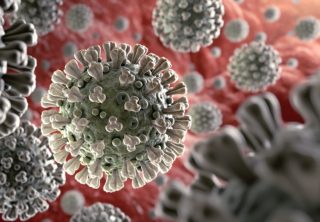Just when we think we understand COVID-19, the virus manages to throw humanity with a curveball. Now, a new group of patients is becoming known. “Long-haulers”is the name given to those who have had coronavirus. but continued to show symptoms after 100 days. Even their tests failed to pick up any strains of the virus.
Who are long-haulers?
For many patients, the virus is manageable. They often become better after a few weeks of rest and self-isolation. A report by the World Health Organization indicates that the majority of people fall into one of two groups. Around 80% of those with COVID-19 have a mild response. These cases usually resolve in approximately two weeks. When it comes to those who develop a severe response to the virus. They generally need between three and six weeks to recover and the symptoms to fade.
For long-haulers, however, the virus just won’t go away
Some patients suffer for months on end. Long-haulers don’t fall into either of these categories. They often don’t fit the description of high-risk, elderly cases. A July 24 report by the U.S. Centers for Disease Control found that one in five respondents between the ages of 18-34 said they aren’t recovering. Not only were these respondents in the younger age bracket. But they also didn’t have any prior chronic medical conditions. This is alarming. Especially when you consider that more than 90% of influenza patients that weren’t hospitalized recover completely in two weeks.
Long term disability
While their symptoms don’t require hospitalization. These patients suffer neurological problems, fatigue, sleeplessness, breathlessness, relentless fevers, as well as headaches, and violent diarrhea. Worse still, these symptoms can turn into a long period of disability. Researchers recently published a JAMA Cardiology study. They found that many of the recently recovered patients suffered lingering heart abnormalities. Inflammation was the most common symptom.
Their symptoms don’t align with the general diagnosis for COVID-19
According to the Guardian, in a survey of 1500 people with COVID-19. More than half of the respondents reported having such symptoms for longer than three months. The survey was conducted by a Facebook community of long-haulers. There are currently several online support groups. The Body Politic and the Survivor Corps are two primary groups. Here, these patients can share symptoms and research, converse with other sufferers, as well as get contacts with medical professionals who are sympathetic to the condition. Several groups have also started their own research projects to find out more about their condition.
Because their symptoms don’t align with the general diagnosis for COVID-19. Many patients struggle to convince people that there is something wrong with them and that it is related to coronavirus. Physicians don’t always want to believe them.
COVID-19 complexity
Speaking to The Atlantic, Angela Meriquez Vászquez says that every specialist she saw was wedded to the idea that ‘mild’ COVID-19 infections last two weeks. This includes a cardiologist, rheumatologist, dermatologist, and neurologist. “In one of my first ER visits, I was referred for a psychiatric evaluation. Even though my symptoms were of heart attack and stroke.”
The CDC report also found that 35% of the respondents who tested positive for coronavirus and showed symptoms were still not feeling well between 2-3 weeks after testing. It is noted that recovering from COVID-19 can be a lengthy process. Patients of all ages, genders, and prior levels of health may be looking at “prolonged absences from work, studies, or other activities,” said the report.
Will they see a breakthrough?
Dr. Micheal Peluso is studying long-term COVID-19 outcomes at the University of California, San Francisco. Speaking to Time Magazine, he says that about 20% of his research participants have not recovered. This is between one and four months after their initial diagnosis.
What this could mean for the future is very concerning. Look at the 5 million people with confirmed COVID-19 living in the U.S. If even 10% of those people continue to suffer long-lasting symptoms in the way long-haulers do. That means half a million people could suffer chronic illness in the years to come.
But it seems as though the combined and sustained efforts of long-haulers are starting to pay off. This group is finally receiving attention. At least in certain territories. They are getting more screen time in the media. Physicians seem to have started taking their condition seriously. Better yet, treatment and rehabilitation programs are being developed.
How are doctors treating long-haulers?
Cleveland Clinic family medicine provider Dr. Christopher Babiuch explains that most health systems are forming monitoring programs specifically for these patients.
“There’s a lot of collaboration and research happening as more data is collected,” he says. “And we start to piece together the long-term effects of COVID-19 on the body. Most programs are geared toward managing acute symptoms.
This provides patients with resources and support. Many long-haulers aren’t admitted. Therefore, specialists from primary care, pulmonology, infectious disease, and even mental health touch base with these patients periodically. (Depending on the patient’s medical history and the severity of the long-lasting symptoms). The team is there to identify symptoms that worsen. And get them to the right level of care. We’re also seeing that depression and anxiety are big issues for these long-haulers, so checking in to see how they’re doing is another important aspect in the monitoring program.”
Moving forward from here
Dr. David Putrino is a neuroscientist and rehabilitation specialist at Mount Sinai Hospital. He has cared for many long-haulers since the outbreak started becoming serious in March. He believes the symptoms of long-haulers resemble dysautonomia. This condition refers to disorders that disrupt the autonomic nervous system. This system manages everything from breathing, blood pressure, digestion, and heart rate. If damaged, functions of the body that are usually automatic – like breathing normally – might suffer from erratic changes. This could explain why a common symptom of long-haulers is breathlessness. Even when they have normal oxygen levels.
Disability is something that many long-haulers look at. Partly because of the uncertainty still surrounding the condition. And partly because of how it causes many patients to become chronically ill with varying symptoms.
A long hauler speaks out
Andrea Ceresa (46) spoke to Time Magazine about getting sick in mid-April this year. More than a hundred days after she tested negative, she still has hearing and vision problems. She also battled lingering gastrointestinal issues, heart palpitations, weight and hair loss, neuropathy, as well as nausea, and anxiety. She had to quit her job and has since had to pay for her own health insurance through the federal COBRA program.
Her financial situation is taking a heavy knock.
“I have a stack of bills, and I am just starting to open them now,” she says. “I’m definitely, at this point, going to be in the hole of thousands of dollars. I’m collecting unemployment. I know I’m going to have to go on disability.”
Despite this, she says, she might not be able to pay her bills. Her primary care physician, an integrative care doctor, and a rotating cast of specialists stay in contact with her. After weeks of waiting, she says she got an appointment at a post-COVID program.
It is clear that further research is required on long-haulers and how their condition needs to be managed.
A concerted and collective effort is needed. We need to focus efforts towards finding out how these patients can become well again, and resume their regular lives. As explained by the Guardian. Caregivers, physicians, researchers, and patients need to unite with policymakers and philanthropists, as well as researchers in academia and industry. Only then will we have the answers we are looking for. Only then will these patients stand a chance at taking back their health.
Want to know more?
Find out how you can use mindfulness to fight anxiety through the COVID-19 pandemic.
References:
Jong, E. 2020. The Atlantic. Long-haulers are redefining covid-19. https://www.theatlantic.com/health/archive/2020/08/long-haulers-covid-19-recognition-support-groups-symptoms/615382/
Amitay, O. & Komaroff A, L. 2020. The Guardian. We know too little about covid-19 long-haulers. We need a comprehensive study. https://www.theguardian.com/commentisfree/2020/aug/19/we-know-too-little-about-covid-19-long-haulers-we-need-a-comprehensive-study
Ducharme, J. 2020. Time. Some coronavirus patients are reporting symptoms that last months. nobody knows exactly how to treat them. https://time.com/5880191/long-haul-covid-19/






![women [longevity live]](https://longevitylive.com/wp-content/uploads/2020/01/photo-of-women-walking-down-the-street-1116984-100x100.jpg)









